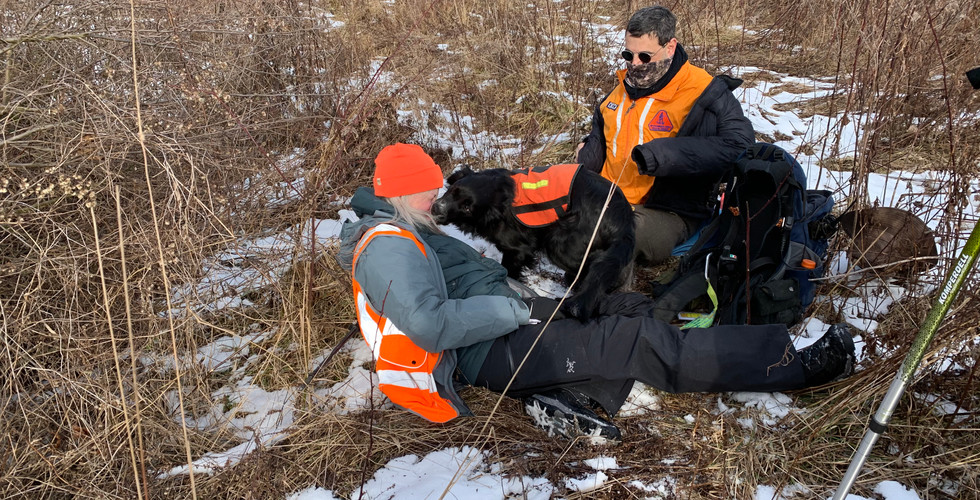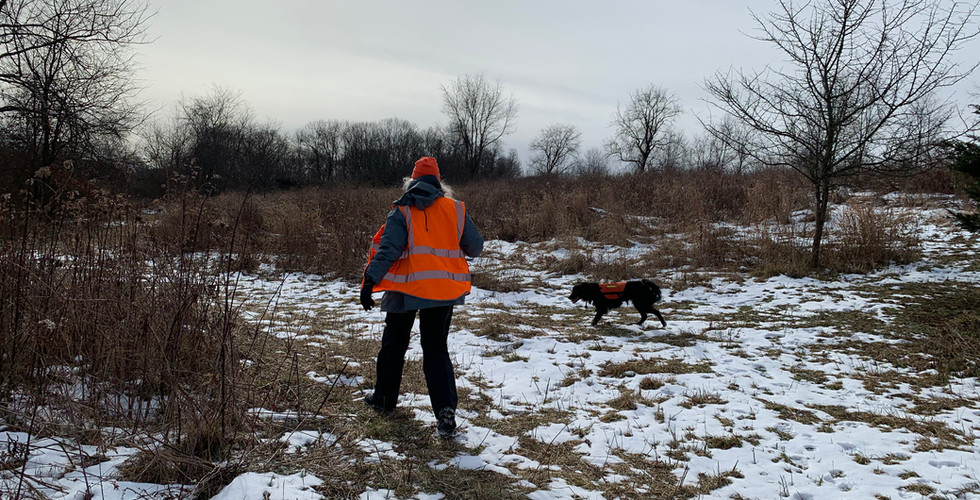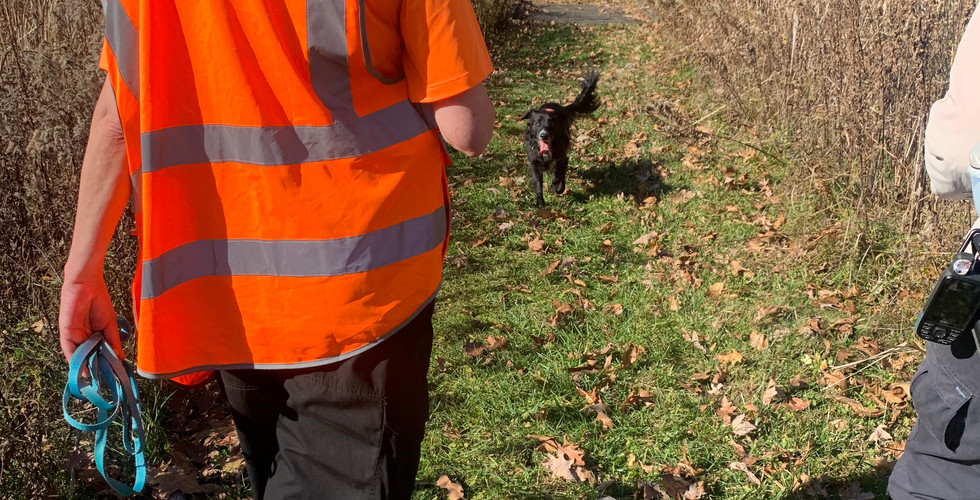I had a puppy who needed a job to do. Specifically, THIS work - air-scent search. I hadn't done SAR before, but he needed it, so I was all in.

Henry comes from a long line of English Shepherds carefully bred and raised to find people, to work with a human handler, and to utterly astound with their intelligence, skills at higher math problems, and incredibly affectionate personalities. When it comes to being cute, the pups of Brandywine crush it. Watch them triangulate scent in the field, and you are ready to grant them a Ph.D.
So with a dog this innately talented, how hard could this be, right?
My mentor, Heather, warned me quite thoroughly, and I appreciated that. To be a dog handler, you must be able to do all the other parts of search and rescue too: know about knots and rope work, deeply understand maps and navigation, learn the protocols for radio communication, be able to survive if you yourself become injured or must spend the night in the woods, and so much more.
On top of the search and rescue skills, dog handlers need to understand how scent works - when it stays low to the ground, when it tends to skim over valleys. Where it might "stick" in a clump of brush. What the wind speed, temperature, season, position of sun all can do to scent.
Search tactics, or how to walk a certain area, so as to give your dog the best chance of catching the scent (and to make sure the area is thoroughly searched), doesn't sound that hard. But when there is no wind, or there are gusts shifting around, it becomes a bit more of a puzzle.

Forming a team with your dog is no small feat. It takes more than a few cookies and a "good boi". Learning to read a shift of the ears, and noticing when the nose pops up. Our dog's tails move differently when they are on scent. Their gait is different. Every dog is unique, and that mind-meld with your dog is something you only reach after years of working together.
We've been training twice a week for about 9 months now. It will take me another year and a half or more to be ready for the test that (hopefully) gives Henry and I the honor of being "operational" (deploying during a real callout situation). This is a typical time frame...it takes a good two years to get a dog to operational status.
Once operational, the dogs STILL need to train every single week. The work does not stop.
THERE ARE NO SHORTCUTS. Being a dog handler for search and rescue is more like a lifestyle. We train in all weather, all times of day and night. Because people don't only get lost on a Saturday afternoon in September. They get lost in rain, and snow, in fields and forests. We gotta be ready for anything.

All this being said, I have never met a team more willing to teach, explain, and generally support all members. My mentor Heather and her dog-handler husband Ken have spent over 260 hours with me in the last 9 months. I respect that gift. If you find someone willing to mentor you, don't ever forget what an investment they are making in you. Don't accept the gift lightly.
Someday, Henry and I will be operational. We may or may not ever actually be the team to find a subject on a real search. That doesn't matter. We may only eliminate areas where a subject is not, allowing available resources to move to other areas. We will never be happy to be called out - a search means someone is in danger. But we will be happy that we could help, if we could support the larger team. If we can contribute to someone being found a little quicker, and that is all that matters.
Need more pics? Click through the gallery!















Comments